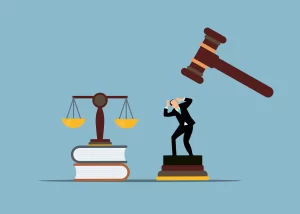Did you know that more than 10 million individuals experience domestic violence annually in the United States? In a world where every individual should feel safe, the harsh reality is that a lot of people, especially those in intimate relationships, suffer from domestic abuse.
Domestic abuse is a serious issue that affects individuals and families across California. And because this is such a widespread problem, California implemented strict laws to protect people and hold abusers responsible.
Understanding the state’s laws regarding domestic abuse is necessary for victims seeking help and protection, as well as for those who work to support them. This article provides an overview of the domestic violence laws in California, detailing the protections they offer and the legal implications for offenders.
Definition of Domestic Abuse
When considering California domestic abuse laws, you must understand that domestic abuse is defined as any form of violence or threat of harm committed by one intimate partner against another.
This includes physical abuse, such as hitting, kicking, or restraining, as well as emotional or psychological abuse, like intimidation, manipulation, or isolating the victim from friends and family. In California, domestic abuse is taken very seriously, and the law aims to protect victims from further harm.
If you’re experiencing domestic abuse in California, there are legal protections available to you. You have the right to seek a restraining order against your abuser, which can help keep you safe by legally requiring them to stay away from you. There are resources and support systems in place to assist you in escaping the abusive situation and starting a new life free from violence.
Types of Domestic Abuse
To better understand domestic abuse in California, here are some of the different types of abuse
that victims may experience in intimate partner relationships. Physical abuse involves any form of violence or physical force, such as hitting, kicking, or choking, that causes harm to the victim.
Emotional or psychological abuse includes behaviors like intimidation, threats, and constant criticism that aim to control and manipulate the victim’s emotions and thoughts. Financial abuse occurs when the abuser controls the victim’s access to financial resources, making it difficult for them to be financially independent.
Sexual abuse involves any non-consensual sexual activity forced upon the victim by the abuser. Verbal abuse includes insults, name-calling, and hurtful language that can cause emotional pain and distress to the victim.
Understand these different types of abuse to identify and address domestic abuse situations effectively.
Legal Protections for Victims
Here are some of the legal protections provided for victims of domestic abuse in California to guarantee their safety and well-being.
One key protection is obtaining a restraining order, also known as a protective order, which prohibits the abuser from contacting or coming near the victim. These orders can also include provisions for child custody and support. In cases where immediate protection is needed, emergency protective orders can be granted without prior notice to the abuser.
California law also allows victims to seek assistance from law enforcement to enforce restraining orders and ensure compliance by the abuser. Violating a restraining order is a serious offense that can result in arrest and criminal charges. Victims have the right to seek legal representation to handle the legal processes involved in obtaining and enforcing protective orders.
Domestic violence shelters and support services are available throughout California to provide victims with their safety, counseling, and resources to help them rebuild their lives. These shelters offer temporary housing and support to individuals seeking to escape abusive situations.
Reporting Domestic Abuse
If you witness or experience domestic abuse in California, you must contact law enforcement by calling 911 immediately. Reporting domestic abuse can potentially save lives and prevent further
harm. When you report an incident, be prepared to provide specific details such as the location, names of individuals involved, and a detailed description of what occurred. Your quick reporting can help law enforcement respond quickly and provide assistance to those in need.
You can also reach out to local domestic violence hotlines or shelters for support and guidance. These resources can offer valuable assistance, including safety planning, counseling services, and information on legal options available to victims of domestic abuse.
Penalties for Domestic Abuse
When someone is convicted of domestic abuse in California, they may face a range of penalties, including but not limited to fines, imprisonment, and mandatory counseling programs. The severity of the penalties depends on various factors such as the extent of harm caused, prior offenses, and the relationship between the victim and the abuser.
In California, domestic abuse is typically charged as a misdemeanor, but in certain cases where the abuse resulted in serious injury or involved weapons, it can be charged as a felony. Misdemeanor convictions can lead to fines of up to $6,000 and a maximum of one year in county jail. Felony convictions can result in significant fines and multiple years of imprisonment in state prison.
Individuals convicted of domestic abuse in California are often required to attend mandatory counseling programs to address their behavior and prevent future incidents. These programs aim to educate offenders about the impact of their actions and provide them with tools to change their behavior patterns. Failure to comply with these counseling requirements can lead to additional penalties.
Conclusion
If you or someone you know is experiencing domestic abuse in California, you must understand the laws and legal protections available. There are resources and support available to help you go through this difficult situation. Don’t hesitate to reach out for help. You aren’t alone, and help is available to protect you from domestic abuse.





